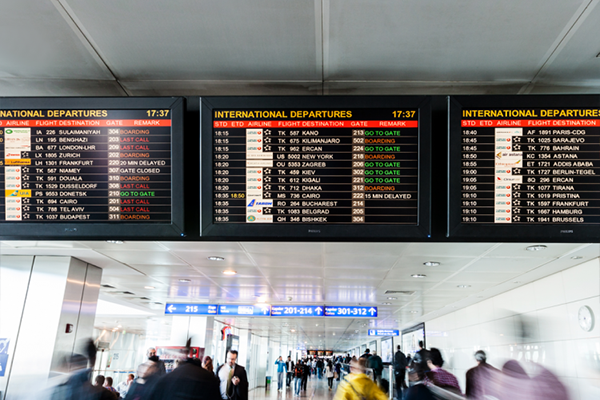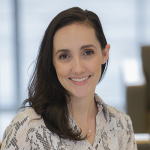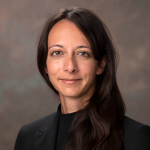
Preventing the Next Pandemic, Session 1: What Did We Get Right and What Did We Get Wrong?
A major lesson learned from the COVID experience is how critical coordination and collaboration in all realms have been. How can public health practitioners and researchers promote that within and across disciplines to prepare for the next pandemic?


Register
Course Information
- Audience: Public Health Professionals
- Format: Recorded Webinar
- Date/Time: Friday, April 8th, 2022
10:30 PM – 12:00 PM EST - Price: Free
- Length: 1.5 hours
- Credential(s) eligible for contact hours: Sponsored by New England Public Health Training Center (NEPHTC), a designated provider of continuing education contact hours (CECH) in health education by the National Commission for Health Education Credentialing, Inc. This program is designated for Certified Health Education Specialists (CHES) and/or Master Certified Health Education Specialists (MCHES) to receive up to 1.5 total Category I continuing education contact hours. Maximum advanced-level continuing education contact hours are 0. Provider ID: SS1131137_PNP1.If you are not seeking a CHES/MCHES contact hours, if you complete the post-test and evaluation, you will receive a Certificate of Completion. The Certificate will include the length of the course.
- Competencies: Leadership and Systems Thinking Skills
- Learning Level: Awareness
- Companion Trainings: Preventing the Next Pandemic, Session 2: How Do We Reduce the Risk of Another Pandemic and Also Prepare for Another?
- Supplemental materials:None
- Pre-requisites: None
About this Recording
COVID-19 has readily made the point that the era of infectious diseases is far from over. And there are good reasons to think that with increasing urbanization and climate change, more large outbreaks and pandemics are in store. As we move away from an emergency response to dealing with the lasting impacts of COVID-19, it is critical that we learn the lessons around what we did well and what we did poorly and develop clear plans for preventing, where possible, and mitigating the impact of, when not, any future pandemic. Cohosted with the Boston University Center for Emerging Infectious Disease Policy and Research.
What you'll learn
At the end of the recording, participants will be able to:
- Discuss lessons learned about the role of clinical research and clinical research infrastructure related to development and testing of COVID therapeutics and vaccine development
- Describe current state of evidence of the origin of the COVID virus and the ramifications of understanding the specific origin
- Describe how well lessons learned from previous infectious disease outbreaks (e.g., H1N1, SARS, Ebola) informed response to COVID
- Discuss the ramifications of different societal approaches to COVID across the range of personal autonomy and responsibility through collective action
Moderator

Nahid Bhadelia
@BHADELIAMD
Director, Boston University Center for Emerging Infectious Diseases Policy and Research; Associate Director, National Emerging Infectious Diseases Laboratories
Natalie Dean
@NATALIEXDEAN
Assistant Professor, Department of Biostatistics, Rollins School of Public Health, Emory University
Angela Rasmussen
@ANGIE_RASMUSSEN
Research Scientist, Vaccine and Infectious Disease Organization, University of Saskatchewan
Maria Sundaram
@MARIASUNDARAM
Associate Research Scientist, Center for Clinical Epidemiology and Population Health, Marshfield Clinic Research Institute
Rajeev Venkayya
@RVENKAYYA
Chief Executive Officer, Aerium Therapeutics; Board Member, Coalition for Epidemic Preparedness Innovations (CEPI)
Dr. Bhadelia is the founding director of BU Center for Emerging Infectious Diseases Policy and Research and an associate director of the National Emerging Infectious Diseases Laboratories (NEIDL), a state-of-the-art maximum containment research facility at BU. She is a board-certified infectious diseases physician and an internationally recognized leader in highly communicable and emerging infectious diseases (EIDs) with clinical, field, academic, and policy experience in pandemic preparedness and response. Over the last decade, Dr. Bhadelia designed and served as the medical director of the Special Pathogens Unit (SPU), a medical unit designed to care for patients with highly communicable diseases, and a state designated Ebola Treatment Center. She has prior and ongoing experience in health system response to pathogens such as H1N1, Zika, Lassa fever, Marburg virus disease, and COVID-19 at the state, national, and global levels, including medical countermeasure evaluation, diagnostic positioning, infection control policy development, and healthcare worker training. Dr. Bhadelia serves on state, national, and interagency groups focused on biodefense priority setting, development of clinical care guidelines, and medical countermeasures research. She has served as a subject matter expert to the US Centers for Disease Control and Prevention, Department of Defense (DoD), and World Bank.
Subject Matter Experts
Dr. Natalie Dean (CAS’09) is an Assistant Professor in the Department of Biostatistics and Bioinformatics and in the Department of Epidemiology at Emory’s Rollins School of Public Health. She received her PhD in Biostatistics from Harvard University, and previously worked as a consultant for the WHO’s HIV Department and as faculty at the University of Florida. Her primary research area is infectious disease epidemiology and study design, with a focus on developing innovative trial and observational study designs for evaluating vaccines during public health emergencies. She has previously worked on Ebola, Zika, dengue, chikungunya, and now COVID-19. She received the 2020 Provost Excellence Award for Assistant Professors at University of Florida. In addition to research, she has been active in public engagement during the COVID-19 pandemic. She is verified on Twitter with over 120k followers and has authored pieces in outlets such as the Washington Post, New York Times, and Stat News. Dr. Dean is also a proud alum of Boston University, receiving her bachelors in Biology and Mathematics/Statistics from the College of Arts and Sciences.
Dr. Angela (Angie) Rasmussen, PhD is a virologist at the Vaccine and Infectious Disease Organization (VIDO) at the University of Saskatchewan. Her research focuses on the role of the host response in viral pathogenesis, with a particular interest in emerging viruses that are or have the potential to be major threats to global health, such as avian influenza, dengue virus, Ebola virus, MERS-CoV, and SARS-CoV-2. Her work combines classical experimental virology and animal models with systems biology approaches to study the global response to infection and how that contributes to pathogenesis or protection from emerging pathogens. Dr. Rasmussen graduated from Smith College with a BA in Biological Sciences (2000) and received a MA (2005), MPhil (2006), and PhD (2009) in Microbiology and Immunology from Columbia University. She did her postdoctoral fellowship at the University of Washington and previously held faculty positions at the University of Washington and the Columbia Mailman School of Public Health. In addition to her primary appointment at VIDO, Angie is also affiliated with the Georgetown Center for Global Health Science and Security. She is a member of the Verena Consortium, a multi-disciplinary, international effort to predict and study emerging viral pathogens, as well as the Communications Director for the CoVaRR-Net research consortium. She is also a member of the WHO Ad Hoc Expert Committee for Preclinical Models of COVID-19 and sits on the Editorial Boards at Vaccine, mSphere, and Cell Reports. In addition to her research, Dr. Rasmussen is a prolific science communicator on both social media and in the mainstream press, as well as a writer for numerous publications including Forbes, Leaps.org, Slate, Foreign Affairs, the Washington Post, and the New York Times. She is passionate about advocating for equity in biomedical research and public health, and is a member of the US NIH Advisory Committee to the Director Working Group on Changing the Culture to End Sexual Harassment, as well as a faculty mentor for the volunteer science education group Wearing is Caring. She believes strongly that biosecurity and global public health must be collaborative international efforts and is eager to extend this outreach work in Canada and abroad.
Maria Sundaram, MSPH, PhD is an infectious disease epidemiologist and Associate Research Scientist in the Center for Clinical Epidemiology and Population Health at the Marshfield Clinic Research Institute. Her research focuses on respiratory viruses and the vaccines that prevent them, as well as vaccine promotion and policy. Her research has included estimating influenza vaccine effectiveness with the CDC-based US Influenza Vaccine Effectiveness Network, and describing the epidemiology of RSV in young children and older adults in rural areas. More recently, her research showed COVID-19 testing inequities had the potential to create bias in COVID-19 vaccine effectiveness estimates. She is also a weekly guest expert on the BBC World Service’s radio program Outside Source, where she answers listener questions about SARS-CoV-2, COVID-19, and vaccines.
Dr. Rajeev Venkayya is the CEO of Aerium Therapeutics, a venture-backed co. developing therapeutics against SARS-CoV-2 and other viruses with pandemic potential. He was the President of the Global Vaccine Business Unit at Takeda Pharmaceutical Company Ltd, a position he held until February 2022, where he led a vertically-integrated business developing vaccines for dengue and Zika. He also oversaw partnerships with the Japanese Government to supply COVID-19 and pandemic influenza vaccines. Dr. Venkayya serves as an independent member of the board of the Coalition for Epidemic Preparedness Innovations and the International AIDS Vaccine Initiative (IAVI) and is a life member of the Council on Foreign Relations. While at Takeda, he served as a member of the National Institutes of Health (NIH) Accelerating COVID-19 Therapeutic Interventions and Vaccines (ACTIV) Leadership Team, a public-private partnership to prioritize and speed development of the most promising treatments and vaccines. Prior to joining Takeda, Venkayya served as director of Vaccine Delivery at the Bill and Melinda Gates Foundation’s Global Health Program and served on the board of Gavi, the Vaccine Alliance. Before that, he was special assistant to the president for Biodefense at the White House. In this capacity, he oversaw US preparedness for bioterrorism and biological threats and was responsible for the development and implementation of the National Strategy for Pandemic Influenza. Venkayya trained in pulmonary and critical care medicine at the University of California, San Francisco, where he also served on the faculty. He was resident and chief medical resident in internal medicine at the University of Michigan.
Registration
Select the Enroll Me button below to register for this recording. If you have any trouble accessing the recording, contact support@nephtc.org.
Acknowledgement:
This project is/was supported by the Health Resources and Services Administration (HRSA) of the U.S. Department of Health and Human Services (HHS) under grant number UB6HP31685 “Regional Public Health Training Center Program.” This information or content and conclusions are those of the author and should not be construed as the official position or policy of, nor should any endorsements be inferred by HRSA, HHS or the U.S. Government.

